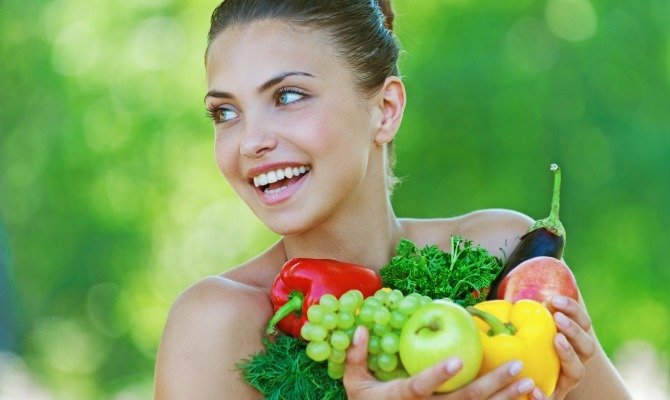3 Health Tips For The Vegan Cook
The vegan diet, which excludes all animal products and byproducts, has become increasingly popular around the world in the past decade. It's no wonder that IKEA has added vegan meatballs to the menu, a former Man v. Food show host made headlines for referencing veganism on Twitter, and Wired recently reported on a "real vegan cheese" that will be made entirely from yeast cells. Vegan options are everywhere, and they are often marketed as healthy alternatives to traditional dishes. However, when it comes to health benefits, not all vegan meals are created equal. Below are a couple of important factors to take into consideration:
Many vegan substitutes are processed.
If your chickpea pasta, tofu patties, or faux "chicken" fingers look and taste just like the meat-based alternative, then they were probably heated to very high temperatures to change the natural composition, texture, or taste of the ingredients. This isn't necessarily a bad thing, but heating and freezing foods can decrease the value its nutrients have for our bodies. Although the exact nutrient deficit is up for debate, a bowl of fresh-cooked lentils is probably better for our bodies than a burger made of lentils that have been super-heated, frozen for weeks, cooked, saved, and then re-heated in the microwave for lunch. All that considered, many substitutes present healthy alternatives to their traditional counterparts. Legume-based pastas, for instance, actually tend to offer more fiber, protein, and nutrients, for fewer calories, than white or even wheat flour pasta. These pastas are also much more filling and nutrient- dense than traditional pasta, so diners become satiated with a smaller portion — and tend to consume fewer calories.
Every diet needs protein.
The Dietary Reference Intake, a set of dietary guidelines outlined by the Food and Nutrition Board at the U.S. Department of Health & Human Services, is about .36 grams per pound of bodyweight. By that index, a man or woman weighing 150 pounds should consume about 54 grams of protein a day. Because the vegan diet is plant-based, vegans need to go to extra lengths to incorporate anywhere close to this amount of protein into their meals. Vegan protein can be found in legumes, like lentils and nuts, especially almonds, and grains, including quinoa and buckwheat. You may also consider purchasing a vegan protein mix, which can make it easier to blend together protein-packed smoothies or DIY protein bars. I recommend looking for protein mixes that are largely made from pea protein rather than soy protein isolate, because they tend to be more easily digested.
Be prepared with snacks.
Vegan diets can be successful in helping people lose weight in part because the restriction encourages people to eat more fresh foods. But that means that when that 4 o'clock snack craving hits, you've got to be prepared with something aside from candy and crackers (many of which include dairy-based ingredients). I frequently remind patients at the St. Joseph Health Wellness Corner, where I work, to have an emergency kit on hand no matter what kind of diet they prefer. For anyone looking to be healthy or lose weight, one great emergency kit item is pre-portioned nuts, like almonds or cashews. I recommend portioning them out ahead of time because nuts are very calorie-rich, and eating too many of them in one sitting can lead to indigestion and an overconsumption of calories. Other great choices for the emergency kit are smoothie ingredients (if you can access a blender), vegetable sticks and hummus, or a protein bar that has at least five grams of protein, few ingredients, and not too much sugar (try to keep it under five grams).
All of the above tips are great for anyone who is trying to follow a healthy diet. If veganism is your method of choice, these may be especially useful to you.
Lisa Gorman, RN, is the director of the St. Joseph Health Wellness Corner in Irvine. Lisa has worked in wellness and prevention for more than 10 years, and is currently a registered nurse with 25 years of health care experience.
Kristie Collado is The Daily Meal's Cook Editor. Follow her on Twitter @KColladoCook.
